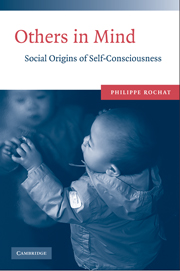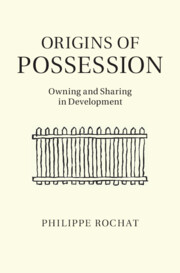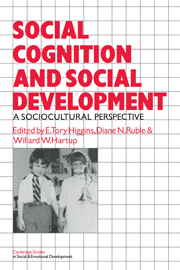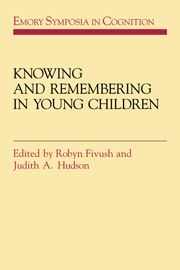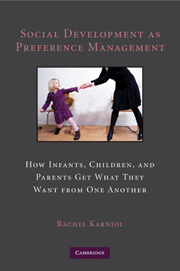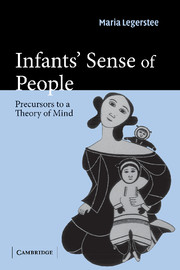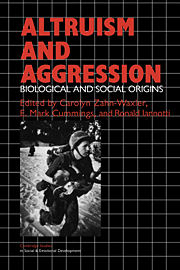Others in Mind
Social Origins of Self-Consciousness
- Author: Philippe Rochat, Emory University, Atlanta
- Date Published: February 2009
- availability: Available
- format: Paperback
- isbn: 9780521729659
Paperback
Other available formats:
Hardback, eBook
Looking for an inspection copy?
This title is not currently available for inspection. However, if you are interested in the title for your course we can consider offering an inspection copy. To register your interest please contact [email protected] providing details of the course you are teaching.
-
In this book, Philippe Rochat explores self-consciousness, how it originates and how it shapes our lives, arguably the most important and revealing of all psychological problems. Why are we so prone to guilt and embarrassment? Why do we care so much about how others see us, about our reputation? What are the origins of such afflictions? Rochat argues that it is because we are members of a species that evolved the unique propensity to reflect upon themselves as an object of thoughts; an object of thoughts that is potentially evaluated by others. Based on empirical observations, this is a book of ideas, tapping into both developmental and anthropological phenomena and guided by strong existential intuitions regarding the human condition. At the core of these intuitions, there is the idea that human psychic life is predominantly determined by what we imagine others perceive of us.
Read more- Integrates developmentally informed approaches to provide a new synthesis and theory on the nature and origins of human self- consciousness
- Covers a universal human phenomenon, combined with a unique philosophical argument
- New perspective on the developmental origins of self-concept that combines cognitive, cross-cultural and evolutionary approaches
Reviews & endorsements
'Rochat's book combines both theoretical and empirical support for the view that the self is socially constructed through interactions with others. Philosophers and psychologists interested in development, embodiment, the self, or relationships, will find that Rochat's book offers a concise and persuasive account which challenges a traditional internalist conception of the self. In short, it is the kind of work that will prove to greatly benefit the discourse on the nature of the self.' Lucas A. Keefer, Philosophical Psychology
See more reviews'… an ambitious and fruitful project … Rochat's theory of the social construction of the self will undoubtedly be valuable for both philosophers and psychologists, with the caveat that there are unexplored theoretical issues in need of development.' Philosophical Psychology
Customer reviews
Not yet reviewed
Be the first to review
Review was not posted due to profanity
×Product details
- Date Published: February 2009
- format: Paperback
- isbn: 9780521729659
- length: 264 pages
- dimensions: 231 x 152 x 23 mm
- weight: 0.41kg
- contains: 7 b/w illus.
- availability: Available
Table of Contents
Foreword
Introduction: main ideas
1. Self-conscious species
2. Six propositions
3. Variety of self-reflective mind states
4. Mind states in development
5. Birth of self-consciousness
6. Shame and self-knowledge
7. Roots of guilt
8. Giving and sharing
9. Origins of owning and sharing
10. Social construction of identity
Conclusion: moral space and the self
Post-script note.
Sorry, this resource is locked
Please register or sign in to request access. If you are having problems accessing these resources please email [email protected]
Register Sign in» Proceed
You are now leaving the Cambridge University Press website. Your eBook purchase and download will be completed by our partner www.ebooks.com. Please see the permission section of the www.ebooks.com catalogue page for details of the print & copy limits on our eBooks.
Continue ×Are you sure you want to delete your account?
This cannot be undone.
Thank you for your feedback which will help us improve our service.
If you requested a response, we will make sure to get back to you shortly.
×
